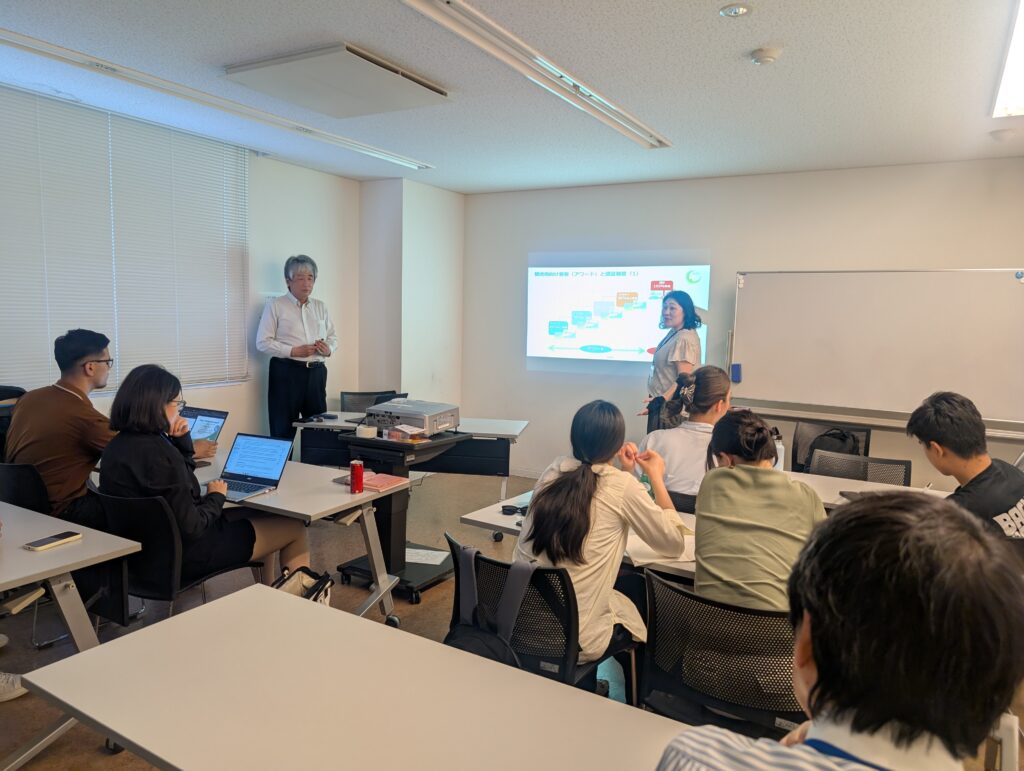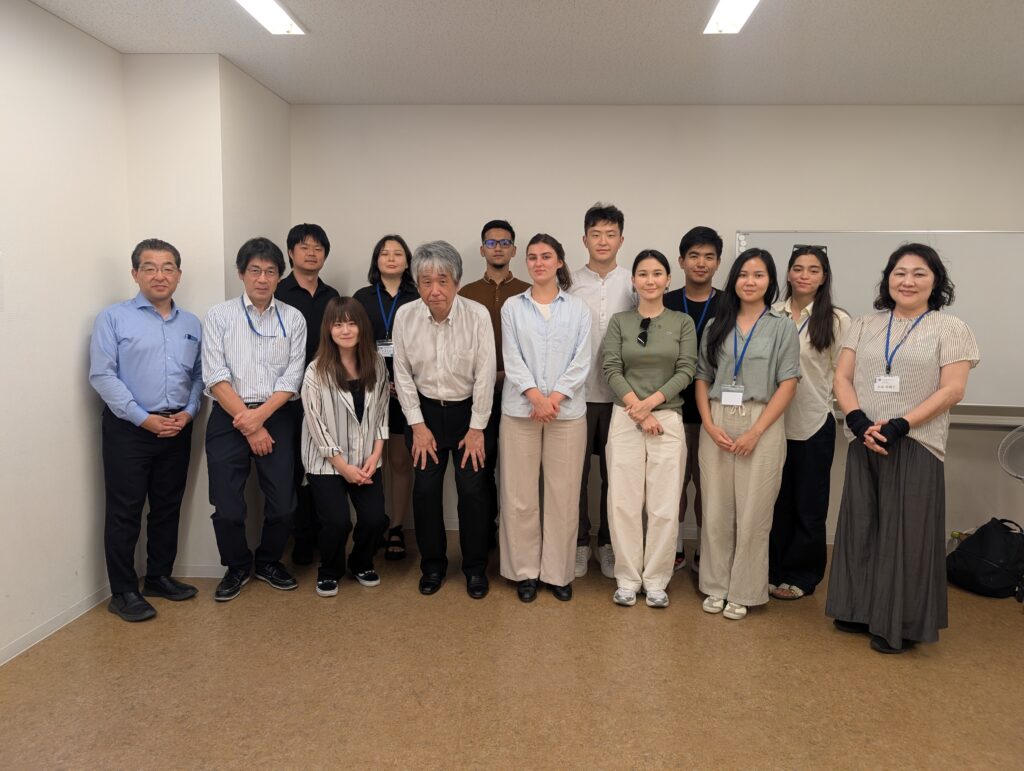Amanbaiuly Mukhtar
During our visit to Hokkaido, we had an insightful lecture by Mr. Masao Aoki from the Japan Sustainability Coordinator Association. It was part of our trip around sustainable development in Japan, and this session particularly stood out to me because it focused on a role as sustainability coordinators in the tourism sector.
Sustainability coordinators are professionals who work to make tourism more environmentally and socially responsible. In other words, they help tourist destinations strike a balance between attracting visitors and protecting local culture, nature, and communities. It’s a big job, it made me realize how complex and interconnected sustainable tourism really is.
In Japan, the interest in sustainable tourism has been growing. Back in 2020, the Japan Tourism Agency created the Japan Sustainable Tourism Standard for Destinations (JSTS-D), which follows international sustainability guidelines set by the Global Sustainable Tourism Council (GSTC). By 2025, the Japanese government aims to certify 100 regions for sustainable tourism, with 50 of them recognized internationally.
What struck me most during the lecture was how broad and demanding the role of a sustainability coordinator is. These people need deep knowledge of international sustainability standards, tourism industry practices, local laws, cultural heritage, environmental protection, and even administrative decision-making processes.
And yet, as Mr. Aoki pointed out, the profession is still under-recognized. Many local governments and tourism operators don’t fully understand what sustainability coordinators do or why they’re essential. That’s why the Japan Sustainability Coordinator Association was founded. The main aim is to create a network where these professionals can collaborate, share their experiences, and continue learning together.
Overall, sustainability coordinators are needed and its vitality in tourism has been growing in these years.





